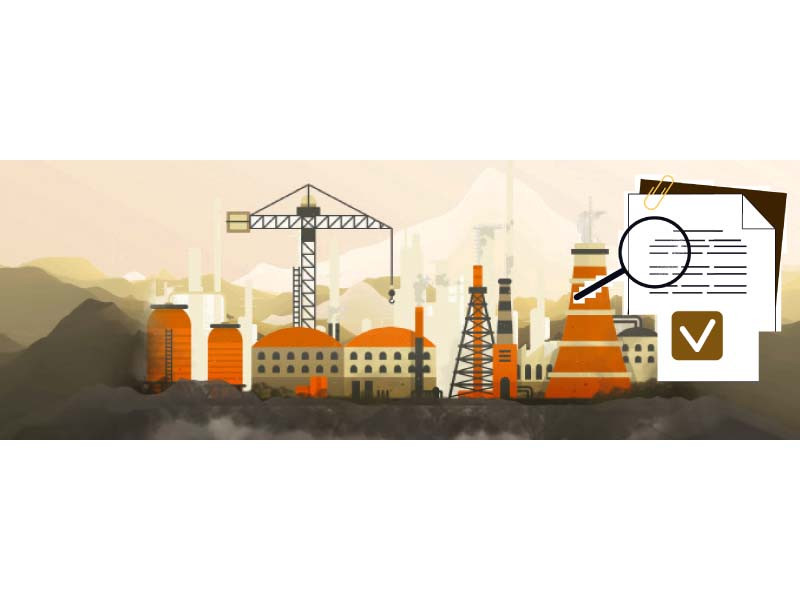ISLAMABAD:
Pakistan’s oil refineries have expressed disappointment over slow progress on finalising a new refinery policy, being designed to help execute plant upgrade projects to produce clean fuels and meet growing consumer demand.
“Refineries have been waiting for the past three years for approval of the new policy,” remarked a senior official of a local refinery.
Government officials revealed that the Petroleum Division had sent a draft of the refinery policy to the Cabinet Committee on Energy (CCOE) for review and approval.
However, certain quarters expressed reservations about the policy, which could delay its announcement.
The previous government had approved a new refinery policy but it hit a deadlock over the incremental revenue offered to the refineries investing in plant upgrading projects.
In that political dispensation, a group of politicians, led by Karachi-based ministers, were against approval of the draft refinery policy.
In the draft, the Petroleum Division pointed out that local refineries were meeting 55% of Pakistan’s annual demand for petroleum products, including supplies for defence needs and essential transportation.
According to recent calculations, they make annual foreign exchange savings of more than $1 billion and process about 70,000 barrels of local crude and condensate per day.
They also generate more than 100,000 direct and indirect employment opportunities and make a substantial contribution to the national exchequer and gross domestic product (GDP).
Refineries claim they have eased the burden on Port Qasim and Karachi Port as instead of importing refined petroleum products, they are processing crude oil to produce multiple energy and non-energy products such as petrol, diesel, JP-1, JP-8, kerosene oil, furnace oil, liquefied petroleum gas, lubes, bitumen, wax, etc.
Despite being integral to the growth of economy, no new refinery project has materialised in Pakistan over more than a decade and only two refineries have been established in the past 40 years.
Petroleum Division has proposed a tariff protection of 10% deemed duty on diesel and 2.5% on petrol to help refineries execute upgrading projects to enhance their production capacity for meeting the country’s demand.
It had already been approved in the budget but refineries were not allowed to utilise the duty collection for modernising their plants.
The locally produced and imported crude oil is refined by five refineries, which have been periodically upgraded to comply with latest fuel specifications.
Petroleum Division has been pressing refineries to undertake additional upgrades of their facilities by producing Euro-V standard fuels and curtailing the production of furnace oil.
This, however, entails a capital investment of approximately $4-4.5 billion. In order to procure financing, the refineries will have to improve their balance sheets and resort to commercial borrowing.
Five-year financial statements of the refineries indicate that the industry requires financial support from the government to improve its financial position to be able to carry out the necessary upgrades.
Pakistan is also looking for investment in the oil refining sector from different countries, particularly Saudi Arabia and the United Arab Emirates (UAE).
Saudi Arabia has shown interest in reviving a stalled project and announced the setting up of a refinery during the tenure of previous Pakistan Tehreek-e-Insaf (PTI) government with an investment of $10 billion.
Industry insiders, however, were concerned that the current situation could potentially discourage investment in the exploration of oil and gas, and cause vulnerabilities in the strategic fuel supply chain. Furthermore, it can also put an additional burden on the balance of payments.
In October 1997, the government had introduced the Petroleum Policy 1997 (amended in 2002), which replaced the minimum 10% guaranteed rate of return for refineries with a tariff protection formula (10% deemed duty on high-speed diesel and 6% on kerosene oil, light diesel oil and JP-4).
However, in 2008, the tariff protection was reduced to 7.5% on high-speed diesel only, which discouraged investment in the establishment of new refineries or plant upgrades.
Subsequently, an energy sub-group of the Planning Commission’s advisory committee was formed, which made recommendations through a letter dated April 14, 2021 for investment in the refining industry with government support, including product pricing policies, tax structures and so on. In light of the situation, the Petroleum Division has prepared the draft of Pakistan Oil Refining Policy for both new and existing refineries.
Published in The Express Tribune, April 9th, 2023.
Like Business on Facebook, follow @TribuneBiz on Twitter to stay informed and join in the conversation.















































